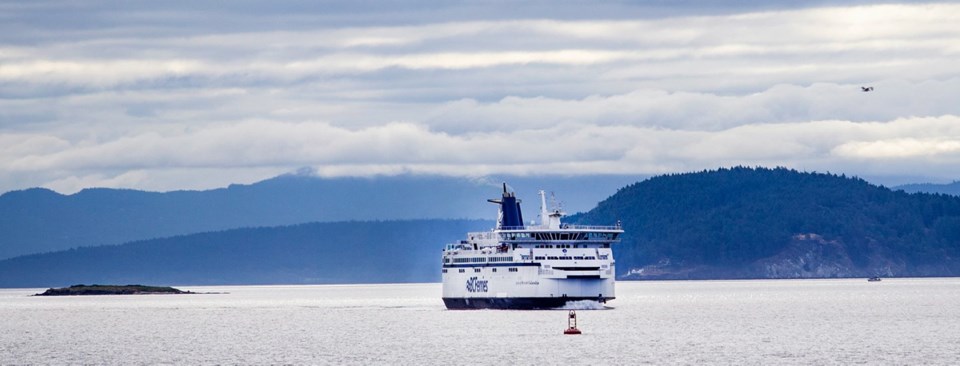People in small Vancouver Island communities are worried that American tourists are flouting border restrictions and could spread COVID-19.
However, one Canadian citizen whose vehicle has American licence plates says people should not rush to judgment.
Mike Hicks, regional director for the Juan de Fuca electoral area, said he’s been contacted by Port Renfrew residents, many of them elderly, concerned about the presence of cars with U.S. plates. “I find it so totally wrong. I personally don’t believe Americans, unless they’re on essential business, should be on Vancouver Island,” Hicks said. Driving to Port Renfrew for fish and chips is not essential, he said.
The charter fishing outfits and tourism operators in Port Renfrew have suffered financially during the lockdown, Hicks said, and he’s concerned out-of-country visitors will spread the virus, making their sacrifice for naught. “Everyone has suffered so much so far to get where we are,” he said. “It’s just a shame that people are taking advantage of it.”
Hicks said B.C. Ferries should take tougher measures to prevent American tourists from travelling to Vancouver Island and the Gulf Islands. “They can easily stop that on the B.C. Ferries.”
Premier John Horgan said Thursday he has spoken with Deputy Prime Minister Chrystia Freeland about the need for her to discuss the issue with American officials but Hicks said Horgan has the power to crackdown on ferry travel.
B.C. Ferries spokeswoman Deborah Marshall said the ferry service is not an enforcement agency and does not have a mandate to restrict travel. The Canada Border Services Agency is screening people who enter the country at its borders.
Keri Smith, who has worked at the Quadra Island General Store for 17 years, said she has seen many people with American licence plates coming to fill up their tank. But she pointed out that some are snowbirds who own cabins on Quadra Island and followed the two-week quarantine rules upon arrival.
“Yes, the community is very concerned but some of the Americans own property here so it’s kind of mixed emotions,” she said.
Smith suspects there are some American visitors who “snuck in” and are not following the quarantine rules.
“You just have to hope that everyone is doing the right thing but unfortunately some people aren’t,” she said.
Jim Abram, a director with the Strathcona regional district who represents the Discovery Islands-Mainland Inlets, said he’s frustrated that some Americans are using the “Alaska loophole” to cross the border and visit Quadra Island, where he lives.
“They can go lots of other ways to get to Alaska. They don’t have to drive through B.C. with 15 stops on the way,” said Abram. “It’s just not valid, it doesn’t hold any water at all with me.”
Horgan said Thursday that Americans travelling through British Columbia on their way to Alaska or returning home should not stop and sight-see around the province.
Abram is concerned that Americans coming from COVID-19 hot spots, where there are thousands of new cases per day, could be bringing the virus into a community with no cases.
“You can’t keep [the virus at bay] if you have people coming and going willy nilly from all these different places that have so many opportunities to have contracted the disease,” Abram said. “And when they come across that border, in my opinion, they are not being screened adequately.”
Abram said the Canada Border Services Agency needs to better communicate the consequences of travelling under false pretenses or breaking the mandatory 14-day quarantine rules.
“To have this somewhat blatant disregard of federal and provincial directives that say the borders are closed, I’m sorry, we’re closed,” he said. “Please come back later, when this is all over.”
Failure to comply with the border restrictions is an offence under the Quarantine Act punishable by fines up to $750,000 and/or six months imprisonment.
Anyone who suspects that someone is not following the border restrictions can call the CBSA Border Watch Line at 1-888-502-9060
Mary, a 66-year-old Canadian citizen who lives in Washington state, said she drove to Greater Victoria in early March to stay with her son because she has a health condition that makes her more vulnerable to the virus. Mary, who did not want to use her last name for fear of backlash, said she walks or bikes if she has to go somewhere because she’s afraid to drive her car with Washington licence plates.
She’s emblazoned her car with a Canadian flag and plans to write “I’m a Canadian” on the back windshield.
“That’s how fearful I am right now,” she said.
Mary, whose husband is still in Washington state running their business, said people shouldn’t be so quick to judge when they see a U.S. licence plate.
“I think you have to be a little bit more understanding and compassionate,” she said. “Most people with plates are here for legitimate reasons and they have to quarantine when they come across.”
— With files from The Canadian Press



